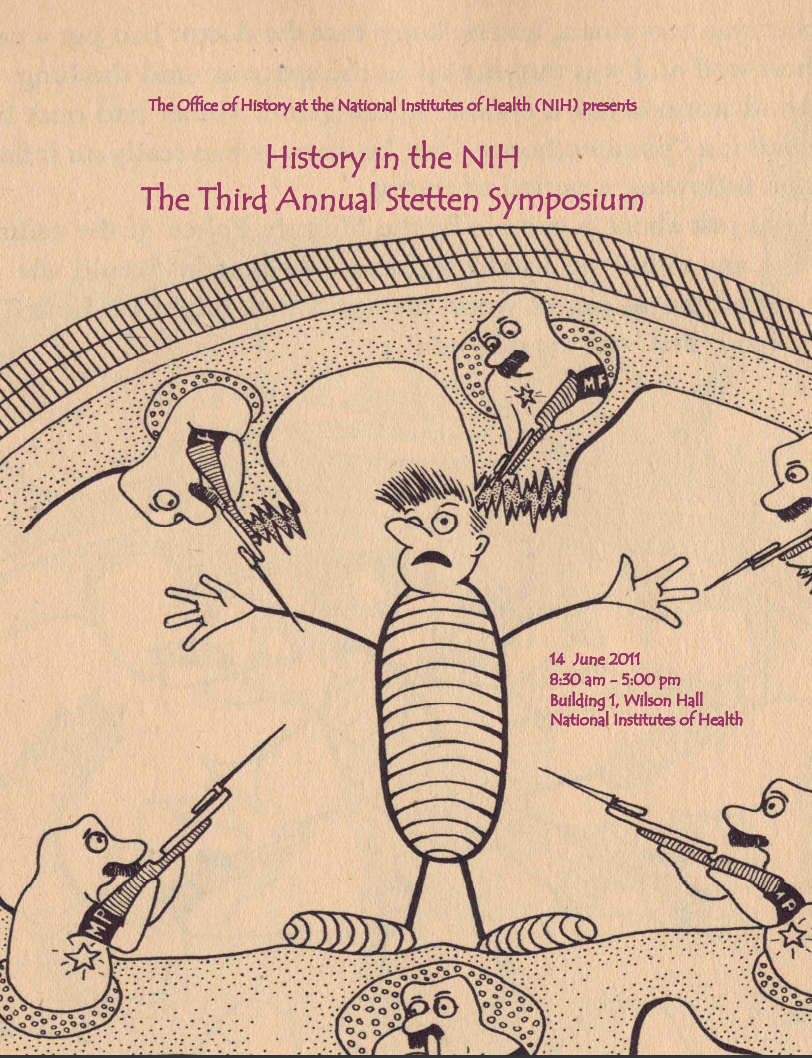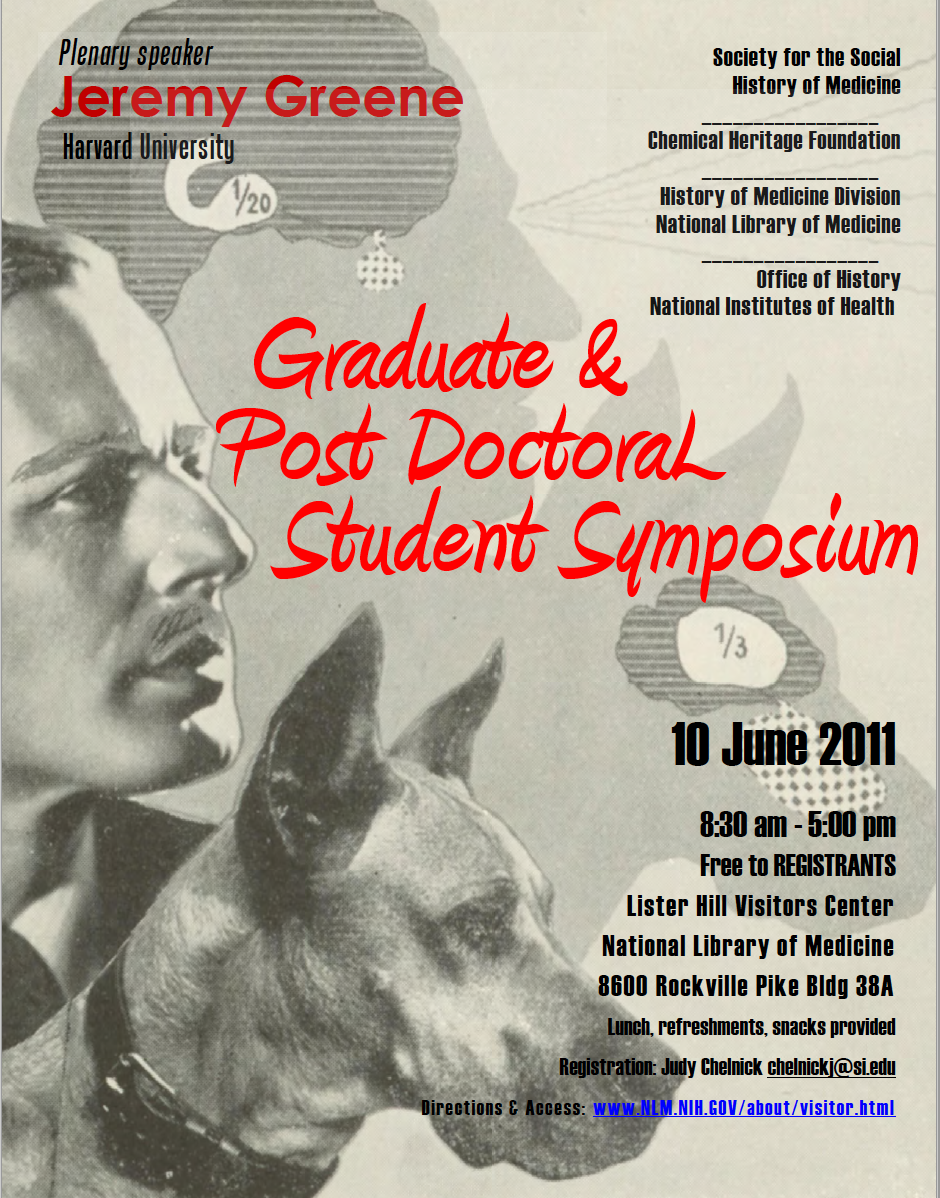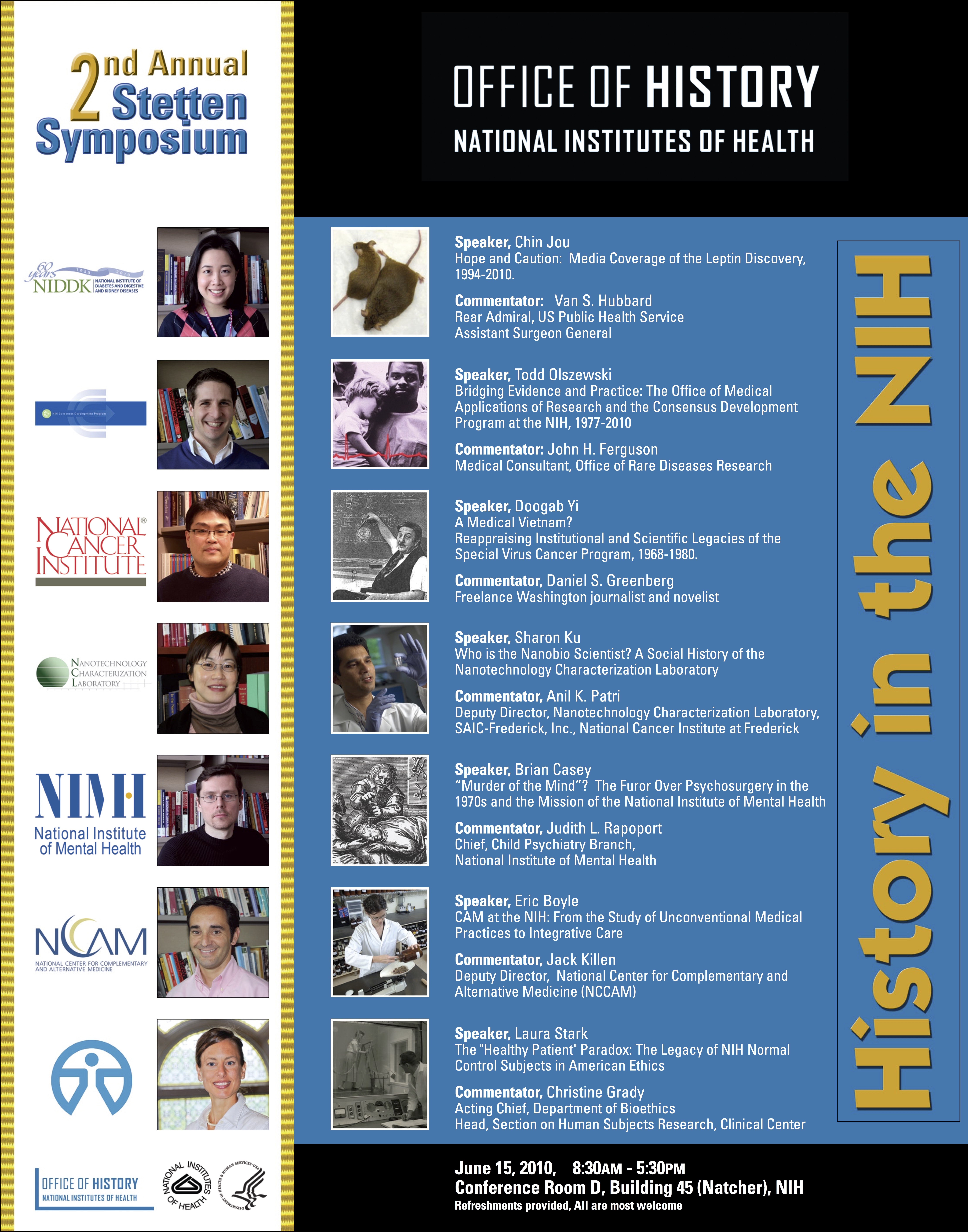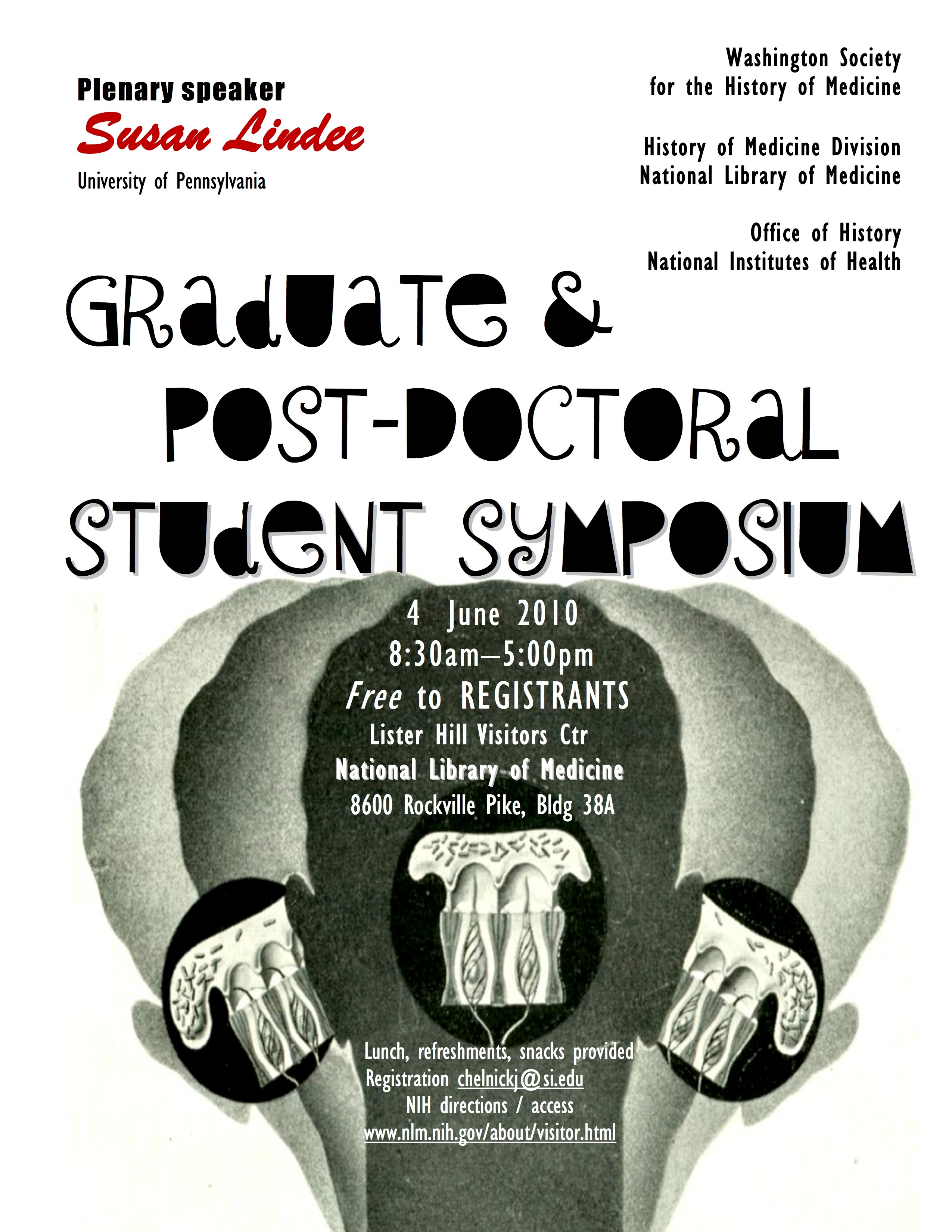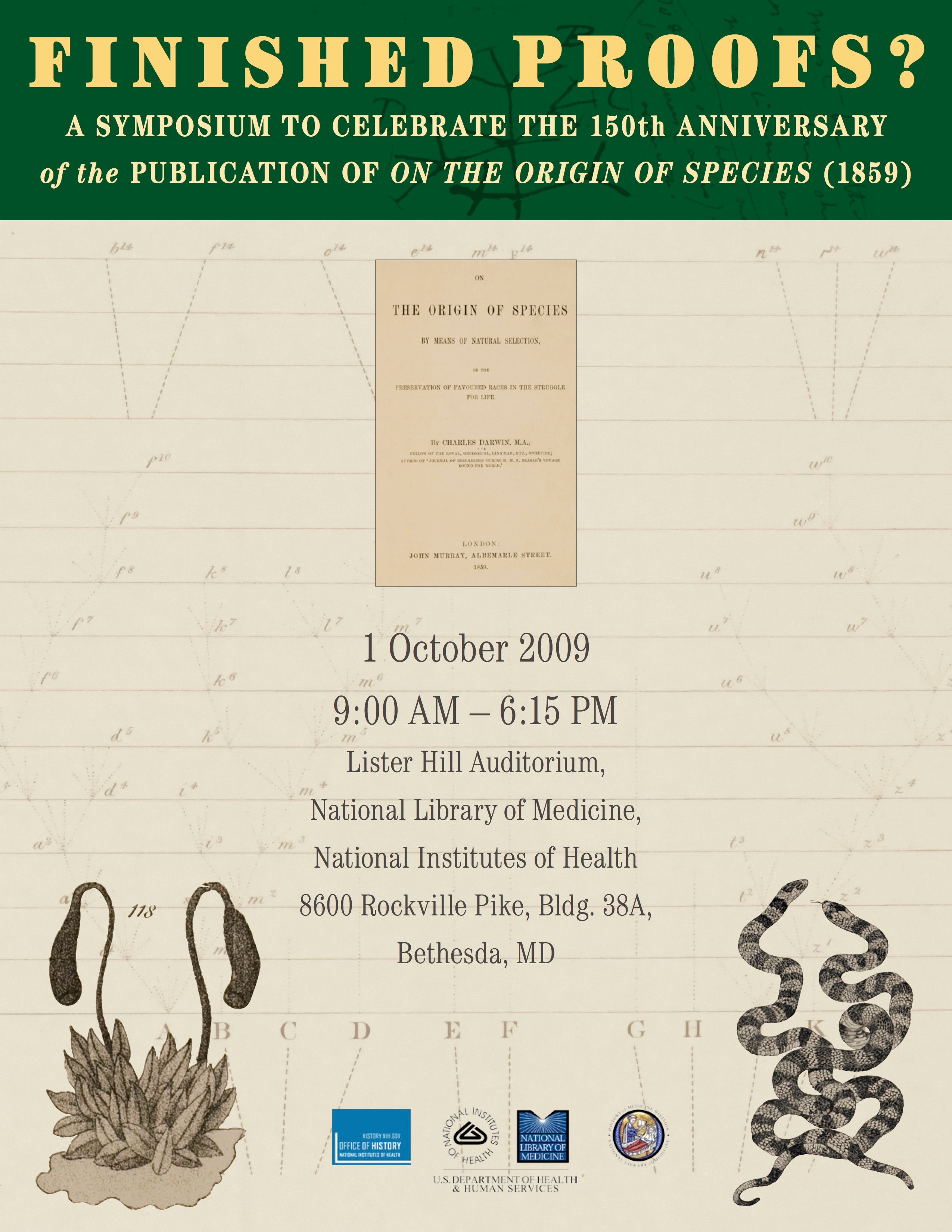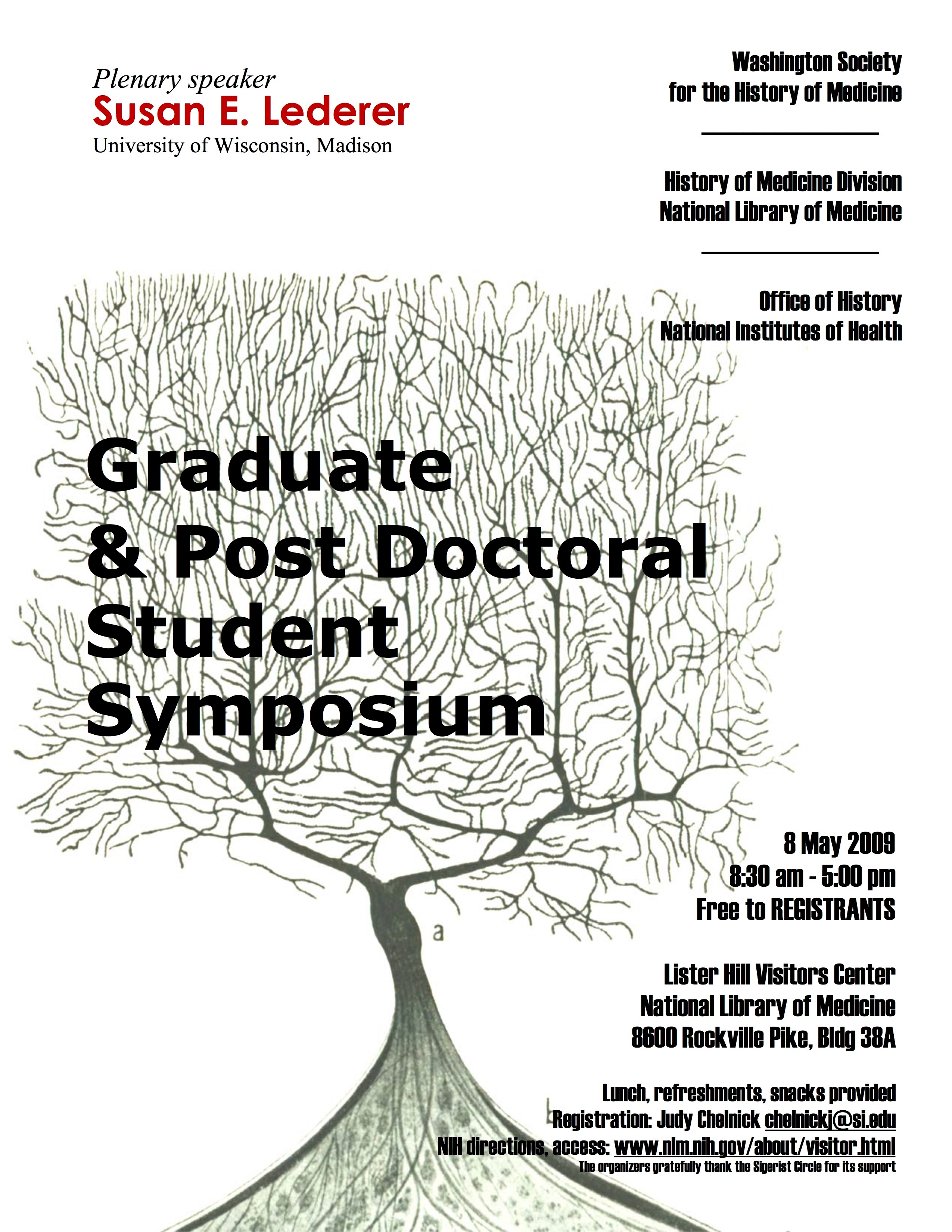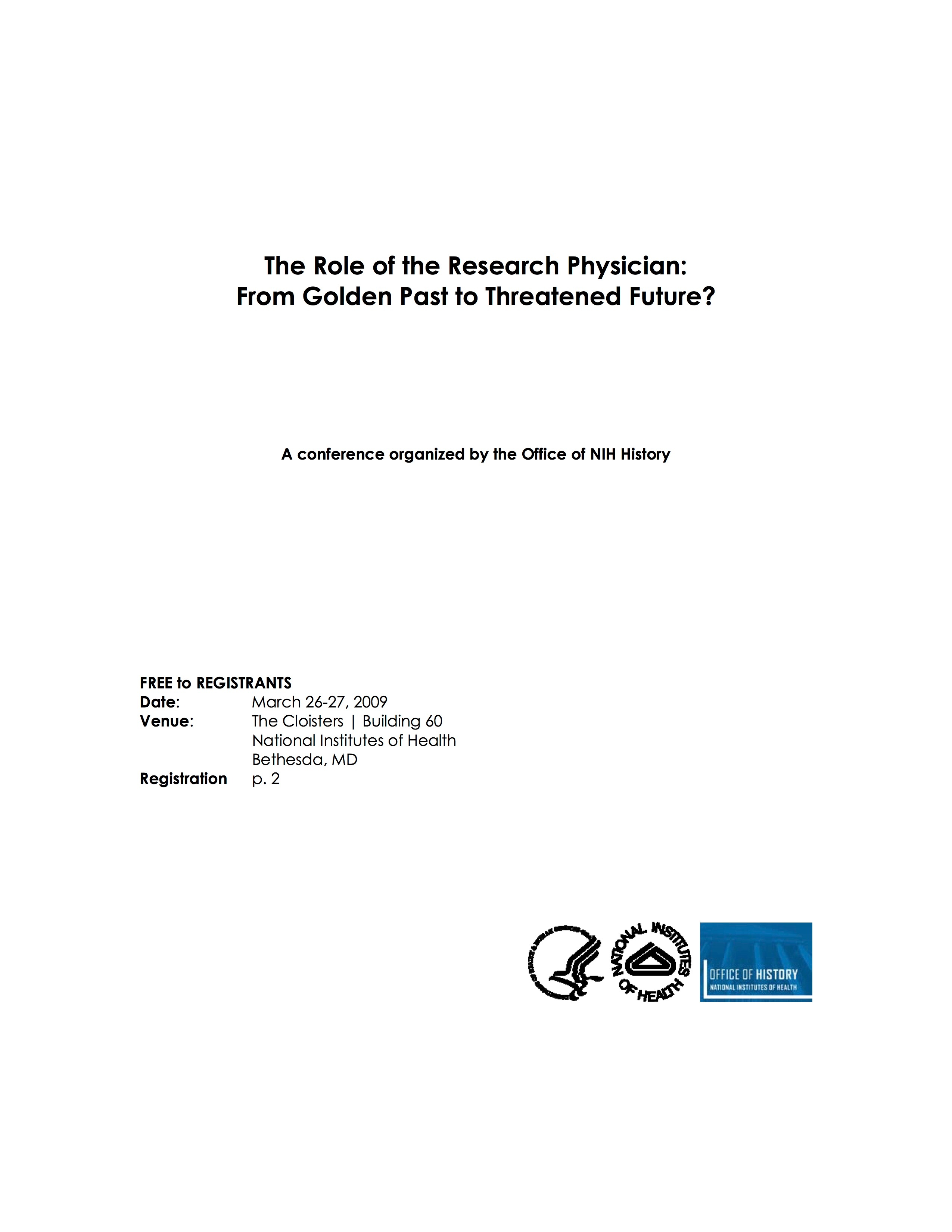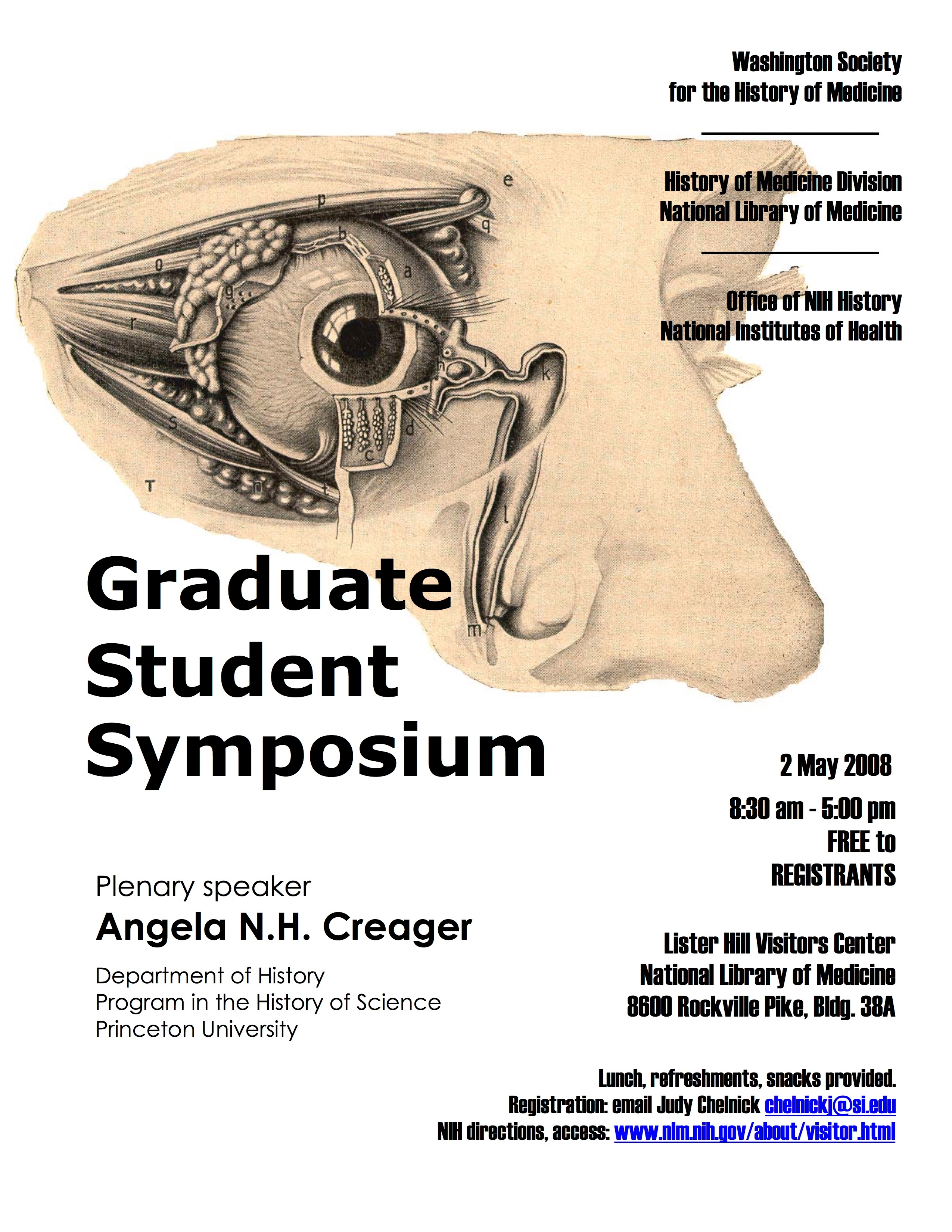Conferences and Symposia Archive
The Evolution of Minority Health Research
"Over the years, our understanding of population has changed, as there is still focus on race but more on ancestry, area of geographic origin, and social determinants of health."
- —Otis Webb Brawley
Dr. Brawley's talk will discuss population differences in health outcomes as defined over the past fifty years, as well as the development of this discipline. This area of research once was called minority health in the 1970s and 1980s, evolved to be called special populations research, and later health disparities, and now the focus is on health equity. Over the years, our understanding of population also has changed, as there is still focus on race but more on ancestry, area of geographic origin, and social determinants of health.
Link now to https://videocast.nih.gov/ical.ics?live=44756 to add this to your Outlook calendar.
This event is sponsored by the Office of NIH History and Stetten Museum. Our office advances the historical understanding of the biomedical research conducted at the NIH by documenting, preserving, and interpreting the history of significant NIH achievements, scientists, and policies. Visit us at https://history.nih.gov.
Flier: Brawley_flyer.jpg (JPEG – 500 KB)
Date/Time: February 24, 2022, 12:00–1:00 p.m. ET
VideoCast link: https://videocast.nih.gov/watch=44756
To view archived lectures from this and other History of Medicine lecture series, please link to https://videocast.nih.gov/PastEvents?c=221.
Dr. Otis Webb Brawley is Bloomberg Distinguished Professor of Oncology and Epidemiology at Johns Hopkins University. A member of the National Academy of Medicine, he leads a broad interdisciplinary research effort regarding cancer health disparities at the Johns Hopkins Bloomberg School of Public Health and the Johns Hopkins Kimmel Cancer Center, working to close racial, economic, and social disparities in the prevention, detection, and treatment of cancer in the United States and worldwide.
A Galaxy of Genius?
The Enduring Dream of Controlling Human Heredity
"What a galaxy of genius might we not create!"
- —Francis Galton, 1865
"What a galaxy of genius might we not create!" burbled Francis Galton in 1865, exuberant about his conception of a voluntary human breeding program, to be informed by Darwinism. Subpar intelligence, he was convinced, lay at the root of poverty, promiscuity, disease, and antisocial behavior of all kinds. A similar enthusiasm girds contemporary social and behavioral genetics, or "sociogenomics." In fact, every revolution in our understanding of heredity prompts a new wave of enthused hereditarianism: Darwinism, Mendelism, cytogenetics, molecular biology, genomics. With every advance, scientists and the public ask new versions of the same questions, such as: Can we identify born criminals and stop crime before it starts? and, Is genius born or made? Although the questions persist, technology and society are ever evolving. This lecture will examine continuity and change in our enduring impulse to take control of our own evolution, as well as the benefits and risks of our perennial drive to understand, and improve, human nature.
Link now to https://videocast.nih.gov/ical.ics?live=44029 to add this to your Outlook calendar.
This event is sponsored by the Office of NIH History and Stetten Museum. Our office advances the historical understanding of the biomedical research conducted at the NIH by documenting, preserving, and interpreting the history of significant NIH achievements, scientists, and policies. Visit us at https://history.nih.gov.
Flier: Lecture Series_N_Comfort_sm.pdf (PDF – 3.13 MB)
Date/Time: October 28, 2021/12:00-1:00PM
Videocast link: https://videocast.nih.gov/watch=44029
To view archived lectures from this and other History of Medicine lecture series, please link to https://videocast.nih.gov/PastEvents?c=221.
Nathaniel Comfort is Professor of the History of Medicine at Johns Hopkins University. He is the author of The Tangled Field: Barbara McClintock's Search for the Patterns of Genetic Control (2001), editor of The Panda's Black Box: Opening Up the Intelligent Design Controversy (2007), and author of The Science of Human Perfection: How Genes became the Heart of American Medicine (2012).
History in the NIH
The 4th Annual Stetten Symposium
Conference program (PDF – 300KB)
Date/Time: 6 June 2012 / 12:30 - 5:00 p.m.
Venue: Wilson Hall, Building 1, National Institutes of Health
This Symposium is a ‘progress report’ by the four current fellows in the Office of History. Their presentations explore biostatistics and biometry at the NIH, the problem of Leber’s Hereditary Optic Neuropathy, Joseph Kinyoun (the founder of the forerunner of NIH/NIAID), and the origins of NIAAA and NIDA in the 1970s.
Download: Conference program (PDF - 464KB)
Date/Time: 14 June 2011 / 8:30 - 5:00 p.m.
Venue: Wilson Hall, Building 1, National Institutes of Health
This Symposium is a 'progress report' by the eight Stetten fellows in the Office of History. Their presentations explore Federal responses to obesity; the NIH and the problems of homelessness; the problem of anticipation in hereditary disease; nanotechnology and cancer; complementary and alternative medicine at the NIH; the history of biological conceptions of mental illness; and the role of the NIH in promoting AIDS research in Africa.
For further details please download the conference program (above).
Graduate and Post-Doctoral Student Symposium
Download: Conference program (PDF - 252KB)
Date: 10 June 2011
Venue: Lister Hill Visitor’s Center (Building 38A), National Library of Medicine, National Institutes of Health
Free to Registrants
This Symposium – cosponsored by the Office of History, the National Library of Medicine, the Society for the Social History of Medicine and the Chemical Heritage Foundation – aims to provide a forum for graduate and post-doctoral students in the history of medicine and the biomedical sciences in the Mid-Atlantic region to discuss issues of common interest.
For further details and registration please download the conference program.
Stress, Trauma, and Adaptation in the 20th Century
Conference program (PDF - 0.50 MB)
Date: 9-10 November 2010
Venue: Conference Room D, Building 45 (Natcher)
National Institutes of Health
This workshop brings together leading historians from the United States, Canada, Israel, the United Kingdom and Japan to explore changing ideas about stress in the twentieth century. The meeting is co-sponsored by the Office of History, the National Library of Medicine, and the Centre for Medical History at Exeter University.
For further details please download the conference program.
History at the NIH
Conference program (PDF - 2.35 MB)
Date/Time: 15 June 2010 / 8:30 - 5:30 p.m.
Venue: Conference Room D, Building 45 (Natcher)
National Institutes of Health
This Symposium is a 'progress report' by the seven Stetten fellows in the Office of History. Their presentations explore the NCI’s cancer virus program in the 1970s, public responses to Leptin and obesity, nanotechnology and cancer, the NIH consensus development program, complementary and alternative medicine at the NIH, the history of psychosurgery, and the role of the NIH in the development of research ethics.
For further details please download the conference program. For a PDF of the conference poster click here.
Graduate and Post-Doctoral Student Symposium
Conference program (PDF - 252KB)
Date: 4 June 2010
Venue: Lister Hill Visitor’s Center (Building 38A), National Library of Medicine, National Institutes of Health
Free to Registrants
This Symposium – cosponsored by the Office of History, the National Library of Medicine, and the Washington Society for the History of Medicine – aims to provide a forum for graduate and post-doctoral students in the history of medicine and the biomedical sciences in the Washington DC area to discuss issues of common interest.
For further details and registration please download the conference program.
Finished Proofs? A Symposium to Celebrate the 150th Anniversary of the Publication of On the Origin of Species (1859)
Conference program (PDF - 2.2MB)
Date/Time: 1 October 2009 / 9:00 - 6:15 p.m.
Venue: Lister Hill Auditorium, National Library of Medicine (NIH), 8600 Rockville Pike, Bldg. 38A, Bethesda, MD
This symposium (co-organized by the Office of History and the History of Medicine Division of the National Library of Medicine) brings together leading historians, philosophers, and scientists to explore changing understandings of Darwinian theory in the last 150 years.
For further details please download the conference program.
History in the NIH
Conference program (PDF - 192KB)
Date/Time: 16 June 2009 / 12:30 - 5:00 p.m.
Venue: Conference Room D, Building 45 (Natcher),
National Institutes of Health
This Symposium is a 'progress report' by the four Stetten fellows in the Office of History. Their presentations explore NCI's cancer virus program in the 1970s; NIH research on cholesterol; complementary and alternative medicine at the NIH; and the role of the NIH in the development of research ethics.
For further details please download the conference program.
Graduate and Post-Doctoral Student Symposium
Conference program (PDF - 252KB)
Date: 8 May 2009
Venue: Lister Hill Visitor’s Center (Building 38A), National Library of Medicine, National Institutes of Health
Free to Registrants
This Symposium – cosponsored by the Office of History, the National Library of Medicine, and the Washington Society for the History of Medicine – aims to provide a forum for graduate and Post-Doctoral students in the history of medicine and the biomedical sciences in the Washington DC area to discuss issues of common interest.
For further details and registration please download the conference program.
The Role of the Research Physician: From Golden Past to Threatened Future?
Conference program (PDF - 112KB)
Date: 26-27 March 2009
Venue: The Cloisters (Building 60), National Institutes of Health
Free to Registrants
This conference brings together, for the first time, leading physician researchers, organizational leaders, historians, and social scientists for a multi-disciplinary exploration of the physician-scientist research tradition, its changing contours, and the challenges and opportunities it faces going forward.
For further details and registration please download the conference program.
Graduate Student Symposium
Conference program (PDF - 208KB)
Date: 2 May 2008
Venue: Lister Hill Visitor’s Center (Building 38A), National Library of Medicine, National Institutes of Health
Free to Registrants
This Symposium – cosponsored by the Office of History, the National Library of Medicine, and the Washington Society for the History of Medicine – aims to provide a forum for graduate students in the history of medicine and the biomedical sciences in the Washington DC area to discuss issues of common interest.
For further details and registration please download the conference program.
Conference program (PDF – 300KB)
Date/Time: 6 June 2012 / 12:30 - 5:00 p.m.
Venue: Wilson Hall, Building 1, National Institutes of Health
This Symposium is a ‘progress report’ by the four current fellows in the Office of History. Their presentations explore biostatistics and biometry at the NIH, the problem of Leber’s Hereditary Optic Neuropathy, Joseph Kinyoun (the founder of the forerunner of NIH/NIAID), and the origins of NIAAA and NIDA in the 1970s.
For further details please download the conference program (above).
History in the NIH
Conference program (PDF - 464KB)
Date/Time: 14 June 2011 / 8:30 - 5:00 p.m.
Venue: Wilson Hall, Building 1, National Institutes of Health
This Symposium is a 'progress report' by the eight Stetten fellows in the Office of History. Their presentations explore Federal responses to obesity; the NIH and the problems of homelessness; the problem of anticipation in hereditary disease; nanotechnology and cancer; complementary and alternative medicine at the NIH; the history of biological conceptions of mental illness; and the role of the NIH in promoting AIDS research in Africa.
For further details please download the conference program (above).
Graduate and Post-Doctoral Student Symposium
Conference program (PDF - 252KB)
Date: 10 June 2011
Venue: Lister Hill Visitor’s Center (Building 38A), National Library of Medicine, National Institutes of Health
Free to Registrants
This Symposium – cosponsored by the Office of History, the National Library of Medicine, the Society for the Social History of Medicine and the Chemical Heritage Foundation – aims to provide a forum for graduate and post-doctoral students in the history of medicine and the biomedical sciences in the Mid-Atlantic region to discuss issues of common interest.
For further details and registration please download the conference program.
Stress, Trauma, and Adaptation in the 20th Century
Conference program (PDF - 0.50 MB)
Date: 9-10 November 2010
Venue: Conference Room D, Building 45 (Natcher)
National Institutes of Health
This workshop brings together leading historians from the United States, Canada, Israel, the United Kingdom and Japan to explore changing ideas about stress in the twentieth century. The meeting is co-sponsored by the Office of History, the National Library of Medicine, and the Centre for Medical History at Exeter University.
For further details please download the conference program.
History in the NIH
Conference program (PDF - 2.35 MB)
Date/Time: 15 June 2010 / 8:30 - 5:30 p.m.
Venue: Conference Room D, Building 45 (Natcher)
National Institutes of Health
This Symposium is a 'progress report' by the seven Stetten fellows in the Office of History. Their presentations explore the NCI’s cancer virus program in the 1970s, public responses to Leptin and obesity, nanotechnology and cancer, the NIH consensus development program, complementary and alternative medicine at the NIH, the history of psychosurgery, and the role of the NIH in the development of research ethics.
For further details please download the conference program (above). For the conference poster click here.
Graduate and Post-Doctoral Student Symposium
Conference program (PDF - 252KB)
Date: 4 June 2010
Venue: Lister Hill Visitor’s Center (Building 38A), National Library of Medicine, National Institutes of Health
Free to Registrants
This Symposium – cosponsored by the Office of History, the National Library of Medicine, and the Washington Society for the History of Medicine – aims to provide a forum for graduate and post-doctoral students in the history of medicine and the biomedical sciences in the Washington DC area to discuss issues of common interest.
For further details and registration please download the conference program.
Finished Proofs? A Symposium to Celebrate the 150th Anniversary of the Publication of On the Origin of Species (1859)
Conference program (PDF - 2.2MB)
Date/Time: 1 October 2009 / 9:00 - 6:15 p.m.
Venue: Lister Hill Auditorium, National Library of Medicine (NIH), 8600 Rockville Pike, Bldg. 38A, Bethesda, MD
This symposium (co-organized by the Office of History and the History of Medicine Division of the National Library of Medicine) brings together leading historians, philosophers, and scientists to explore changing understandings of Darwinian theory in the last 150 years.
For further details please download the conference program.
History in the NIH
Conference program (PDF - 192KB)
Date/Time: 16 June 2009 / 12:30 - 5:00 p.m.
Venue: Conference Room D, Building 45 (Natcher),
National Institutes of Health
This Symposium is a 'progress report' by the four Stetten fellows in the Office of History. Their presentations explore NCI's cancer virus program in the 1970s; NIH research on cholesterol; complementary and alternative medicine at the NIH; and the role of the NIH in the development of research ethics.
For further details please download the conference program.
Graduate and Post-Doctoral Student Symposium
Conference program (PDF - 252KB)
Date: 8 May 2009
Venue: Lister Hill Visitor’s Center (Building 38A), National Library of Medicine, National Institutes of Health
Free to Registrants
This Symposium – cosponsored by the Office of History, the National Library of Medicine, and the Washington Society for the History of Medicine – aims to provide a forum for graduate and Post-Doctoral students in the history of medicine and the biomedical sciences in the Washington DC area to discuss issues of common interest.
For further details and registration please download the conference program.
The Role of the Research Physician: From Golden Past to Threatened Future?
Conference program (PDF - 112KB)
Date: 26-27 March 2009
Venue: The Cloisters (Building 60), National Institutes of Health
Free to Registrants
This conference brings together, for the first time, leading physician researchers, organizational leaders, historians, and social scientists for a multi-disciplinary exploration of the physician-scientist research tradition, its changing contours, and the challenges and opportunities it faces going forward.
For further details and registration please download the conference program.
Graduate Student Symposium
Conference program (PDF - 208KB)
Date: 2 May 2008
Venue: Lister Hill Visitor’s Center (Building 38A), National Library of Medicine, National Institutes of Health
Free to Registrants
This Symposium – cosponsored by the Office of History, the National Library of Medicine, and the Washington Society for the History of Medicine – aims to provide a forum for graduate students in the history of medicine and the biomedical sciences in the Washington DC area to discuss issues of common interest.
For further details and registration please download the conference program.





